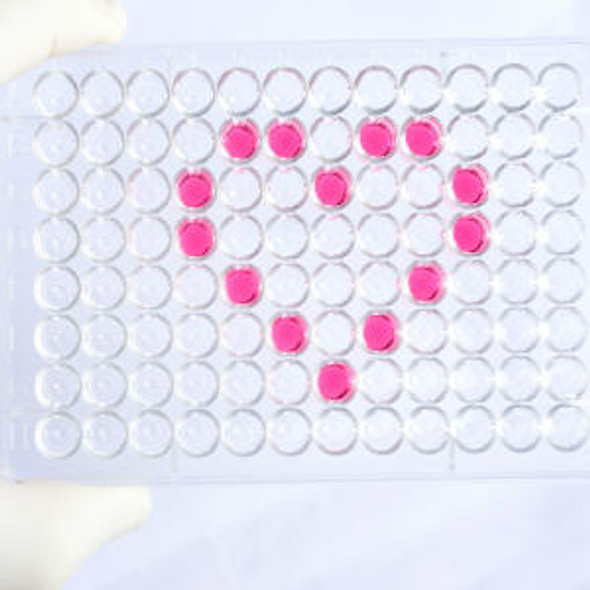Description
| Product Name: | Human Podocin/NPHS2 Recombinant Protein (His tag) |
| Product Code: | RPES5426 |
| Size: | 20µg |
| Species: | Human |
| Expression Host: | E.coli |
| Synonyms: | Podocin, NPHS2, PODO_HUMAN |
| Mol Mass: | 16.5 kDa |
| AP Mol Mass: | 20 kDa |
| Tag: | N-His |
| Purity: | > 95 % as determined by reducing SDS-PAGE. |
| Endotoxin Level: | Please contact us for more information. |
| Bio Activity: | Testing in progress |
| Sequence: | Met 222-Pro 372 |
| Accession: | Q9NP85 |
| Storage: | Generally, lyophilized proteins are stable for up to 12 months when stored at -20 to -80°C. Reconstituted protein solution can be stored at 4-8°C for 2-7 days. Aliquots of reconstituted samples are stable at < -20°C for 3 months. |
| Shipping: | This product is provided as lyophilized powder which is shipped with ice packs. |
| Formulation: | Lyophilized from sterile PBS, pH 7.4. Normally 5 % - 8 % trehalose, mannitol and 0.01% Tween80 are added as protectants before lyophilization. Please refer to the specific buffer information in the printed manual. |
| Reconstitution: | Please refer to the printed manual for detailed information. |
| Background: | Podocin, encoded by the NPHS2 gene, is an approximately 50 kDa membrane protein that plays an important role in podocyte function in the kidney. Loss of Podocin function results in albuminuria, hypercholesterolemia, hypertension, and renal failure. Human Podocin consists of a 102 amino acid (aa) cytoplasmic domain, a 21 aa intramembrane segment, and a second 262 aa cytoplasmic domain. Alternative splicing generates a short isoform with a 68 aa deletion in the second cytoplasmic domain. Within aa 259-383 (the region common to both isoforms), human Podocin shares 90% aa sequence identity with mouse and rat Podocin. Podicin localizes to areas of cell-cell contact between podocytes in the renal glomerulus. It associates into oligomers and forms complexes with Nephrin, CAR, ZO-1, and the cation ion channel TRPC6. It contributes to podocyte function by regulating the activation of TRPC6 and Nephrin mediated signaling. Multiple polymorphisms in NPHS2 are associated with steroid-resistant nephrotic syndrome. |






